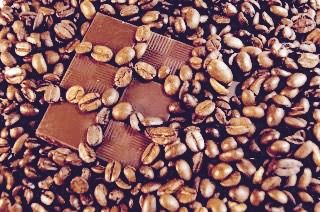Sleep
Sleep Deprived? Got Brain Fog? Chocolate to the Rescue!
A substance in cocoa may reverse some of the effects of sleep deprivation.
Posted May 16, 2016

There’s a simple way to tell if you’re getting enough sleep: You wake up without an alarm, feeling refreshed and functional. For most adults, this happens after 7 to 9 hours of sleep; for teenagers, 8 to 10 hours. That is, unless you’re one of a rare breed of “short sleepers,” who appear to have a genetic ability to stay healthy and function on less than 6 hours of sleep.
If you’re not a short sleeper, getting less than 6 hours sleep every night increases your risk of developing any of a number of mental and physical health problems, including depression, memory disturbances, heart disease, diabetes, stroke, high blood pressure, kidney disease, drowsy driving that can lead to an accident, and even obesity. Just one hour of lost sleep can negatively affect your judgment and reaction time throughout the next day.
But Italian researchers may have found a highly palatable medicine that can lower some of these risks: chocolate! The results of their small study, published in the Journal of Hypertension, suggest that phytochemicals in cocoa called flavanols—which are known to protect heart and brain cells—also protect the vascular system, improve cognitive performance and restore working memory after sleep deprivation. The researchers think these benefits may be due to the positive effects of flavonoids on blood pressure and blood flow throughout the body.
After a night of total sleep deprivation following several nights of regular sleep cycles, study participants were given chocolate bars that were either rich in flavanols or low in flavanols, before they were given a battery of tests and tasks to perform. Those who had eaten the flavanol-rich chocolate performed significantly better than those who ate the flavanol-poor bars. The flavanol-rich bars contained 80% cocoa solids, and provided 510 calories and 520 mg total flavanols. The flavanol-poor bars contained 50% cocoa solids and provided 480 calories with 89 mg total flavonoids. In terms of the chocolate you buy in stores, dark chocolate, and even semisweet chocolate, contains more cocoa solids and significantly more flavanols than milk chocolate. The higher the percentage of cocoa, the better.
The upshot: In terms of your health and safety, there is no substitute for a good night’s sleep. If you have chronic sleep problems, you may need to change your sleep conditions, or see your doctor to figure out the source of the problem and discuss real solutions. But after a restless night, you now have a good excuse to boost your brainpower with some supplemental dark chocolate for breakfast!
Sources:


